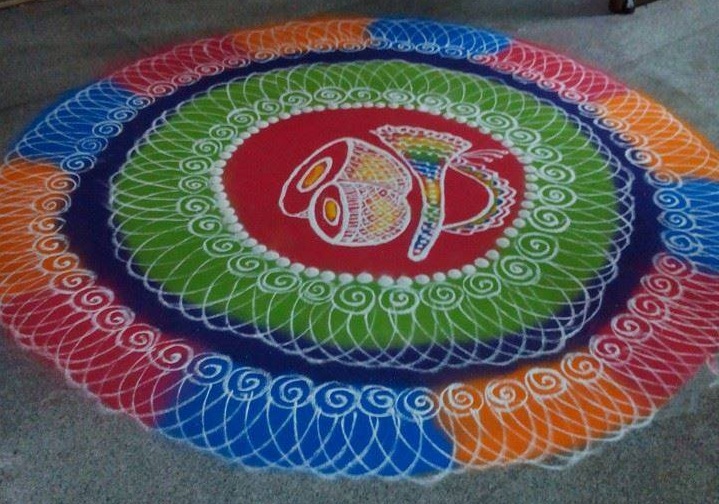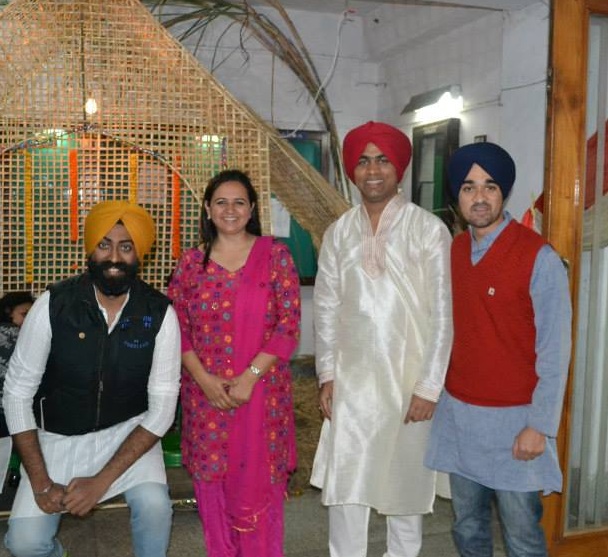Charles De Gaulle once very famously questioned, “How can you govern a country which has 246 varieties of cheese?”-a gastronomically and politically loaded question. Something very similar can be said in the context of India. And when you are in a meritocratic B-school like XLRI, you experience a mini-India with representatives from all states, in a student body of less than 600. In reference to the college, I take the liberty of framing a similar question, “How do you homogenize a student body that comes from 28 states and speaks multitudes of different languages?”
This great institution in its magical hat called ‘XL Culture’ has an answer to this question too. The answer goes by the name of ‘Regional Nights’. Be it the hyderabadi biryani of APAXI, Rajnikanth cutouts of TAXI, the paan from COWBAXI, the chicken from SPAXI, Misl - pav from JAMAXI, the daal-baati from RAJAXI or the Sandesh from ROBAXI you will get a chance to experience the rich and diverse culture of India; that this culture is communicated via tasty food, dance and decoration is only an added sensory advantage.
Students can choose to be a part of any of the 10 regional committees that exist on campus, representing various state(s) of the country. One doesn’t necessarily has to be a Gujju in order to be a Theplaxi. Even a Bengali who studied in NIT Surat or a Dhokla lover like me who has neither set foot in Gujarat, nor speaks Gujarati is welcome. It is this flexibility in membership that allows people from different places to mix and merge in these committees.
Although these committees do not make for CV points, most people still participate enthusiastically in their activities. The primary one is to organise an annual Committee night that entails dinner alongwith a cultural program. So a SPAXI Night would entail pure Punjabi food (lip smacking chicken, dal makhni, lassi and much more) while the cultural night will see the students doing gidda and bhangra in full traditional, dancing gear and DJs alongside.
Since these committees are informal ones all the activities are done solely at the discretion of the members. It is they who mobilise the funds, make the food arrangements, obtain permissions from the administration to organise cultural programs, prepare cultural programs and invite and serve the faculty and the students themselves (imagine your dinner being served by that pretty girl you always wanted to talk to!!)
When I came to know about this tradition, I wondered about its purpose. It soon dawned upon me that all things in life are not done for a purpose, some are done just as a gesture of goodwill to propagate the traditions, culture and food that we have lived by. The motive of these committees is to provide respite from our hectic lives; One of the reticent and serious males in your class dancing hilariously (but enjoying himself) to the tunes of ‘Lungi Dance’ will definitely take your mind off the quiz next day.
More than anything, these nights are a reminder of the fact that no matter how hard we compete with each other, no matter who we like and who we dislike, at the end of the day, we are all real people and not rats in a rat race. It is a very simple way of reminding us of our roots that we so easily forget in the daily humdrum.
Out Vedas say that the act of serving food is the noblest deed any soul may perform. Also, if one eats the food served by another person, the former becomes indebted to the latter. It is probably this higher principle of karma on which this tradition was based…or maybe not, maybe I am just overthinking. Nevertheless, what is important is that for at least a few nights we cease to be competitors, we rather become just a bunch of people who are travelling the roads of their lives and on one stage, come together to sit back and enjoy the food of another land, a land whose culture, traditions, clothing and lifestyle was always an enigma and in this process, get to know that land a little better. This is a very satisfactory experience when one realizes that the land is actually a part of the same country, a part about which we know a little more thanks to this rich tradition.
PS: For the uninitiated, APAXI stands For Andhra Pradesh Association at XLRI, SPAXI stands for Sher-e-Punjab Association at XLRI, JAMAXI stands for Jai Maharashtra Association at XLRI, RAJAXI stands for Rajasthan Association at XLRI and THEPLAXI stands for Theplas/Gujaratis Association at XLRI.
-Akriti
Akriti Gupta, BM class of 2015 student at XLRI Jamshedpur. She is a writer by hobby, a speaker by vocation, a painter on whim and a student by compulsion. She hails from Delhi-NCR and has been to Delhi Public School, R K Puram and Jesus and Mary College, Delhi University to study about..well..things that she doesn’t remember any longer.
If you want to read more from her
Samarthya-The counselling initiative of budding managers at XLRI
Follow Akriti at InsideIIM at akritigupta.insideiim.com




